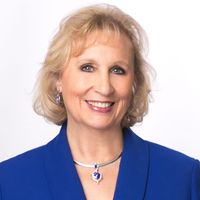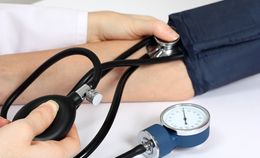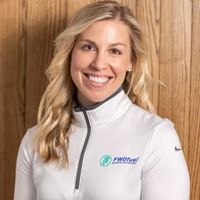In Part I of Menopause: Restoring Retired Ovary Function we cited that while the ovaries retire, the body still has a supply source – the adrenals, liver, breasts and fat cells. Before discussing the preferred option of supporting function, rather than replacing hormones, let’s look at why Hormone Replacement Therapy isn’t always the best remedy.
First of all, Hormone Replacement Therapy (HRT) is a drug approach, whether they are synthetic medications or Bio-Identical Hormones (BHRT). HRT and BHRT is hormone treatment not therapy. It is symptom-chasing, not healing. It is supplementing diminished hormones artificially, not encouraging the body to make its own. According to Kathleen Uhl, MD, the FDA's assistant commissioner for women's health, "The evidence that FDA has seen and what's available in the medical literature leads us to believe that there are the same concerns with bioidentical and other hormone therapy for menopausal symptoms.” This is because they are all drugs (even the over-the-counter creams can be classified as such) and not a remedy.
This statement will probably upset many, so let me clarify. For many centuries we have done without drug hormones. The symptoms we experience today were extremely rare in the past. That was because our diets were more in line with what was needed for good health and our stresses were much different. Stress and diet play a key role in healthy hormones, and because both are in excess and largely unhealthy, it stands to reason our hormonal symptoms will be as well. While there could be some value to short term BHRT, in the long run, function needs to be restored, not replaced.
In her book What Doctors Don’t Tell You, Dr Ellen Grant says "There is no single magic cure (or rub-on-cream) for the man-defined ‘disease' of the menopause". “The best way to approach menopause”, she says, “is to observe simple rules that promote good health such as a good diet, food supplements, avoiding tobacco and other toxins, and getting plenty of fresh air, sunshine, and exercise.”
I agree whole-heartedly. There is so much that we can do to support the function of our endocrine (hormone-producing) system. Particular attention needs to be paid to the adrenal glands, the thyroid, the liver, the sugar-handling mechanism, and our fat reserves. Women approaching menopause frequently gain weight as fat is storage for hormones. However, excess weight also traps toxins, particularly estrogen-mimicking toxins that can have a negative effect on hormonal balance.
Every organ and gland in the endocrine system is dependent upon minerals for function. For example, the thyroid needs iodine, the pancreas needs chromium, and the ovaries need manganese. Supplying our diet with mineral-dense foods such as green leafy vegetables is a great start in supporting these glands which are frequently starving. We need Essential Fatty Acids (EFA’s) in great quantities. These are needed for the body to make hormones. Avocados, fish and fish oil supplements are generally quite helpful.
Acupuncture is also helpful in balancing hormones. Since the goal of acupuncture is to stimulate function and to “harmonize” organ function, it is a great restorative treatment modality.
If you want to feel what anthropologist Margaret Mead describes as “postmenopausal zest”, a feeling of renewed energy and vitality, choose to correct the underlying reason for hormonal symptoms rather than just masking them.
Dr. Holly Carling is a Doctor of Oriental Medicine, Licensed Acupuncturist, Doctor of Naturopathy, Clinical Nutritionist and Master Herbologist with nearly four decades of experience. Dr. Carling is a “Health Detective,” she looks beyond your symptom picture and investigates WHY you are experiencing your symptoms in the first place. Dr. Carling is currently accepting new patients and offers natural health care services and whole food nutritional supplements in her Coeur d’ Alene clinic. Visit Dr. Carling’s website at www.vitalhealthcda.com to learn more about Dr. Carling, view a list of upcoming health classes and read other informative articles. Dr. Carling can be reached at 208-765-1994 and would be happy to answer any questions regarding this topic.















